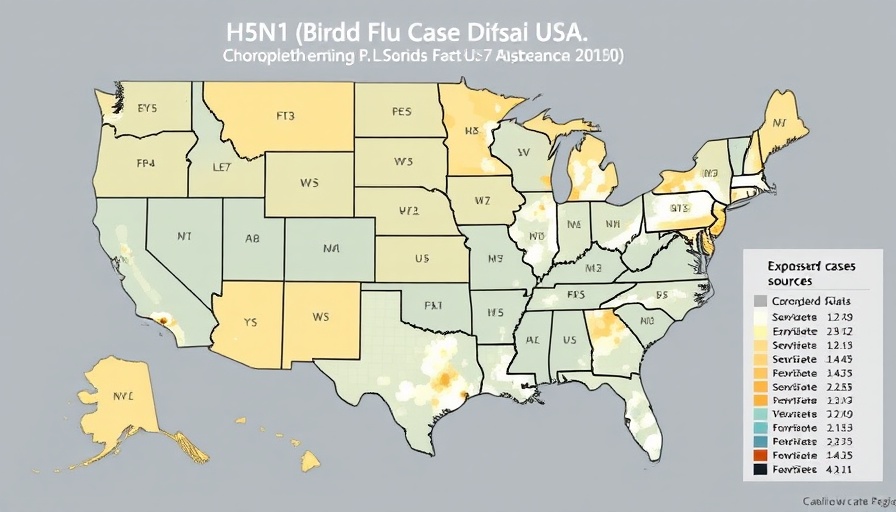
Understanding the Current Bird Flu Situation in Moore County
The Moore County Board of Health recently engaged the community with a presentation aimed at demystifying the ongoing challenges associated with avian influenza, particularly the H5N1 strain. Led by Public Health Epidemiologist Deen Gu, the session provided critical insights into the virus’s nature, its potential dangers, and the necessary precautions that both the health department and individuals can adopt.
What is the H5N1 Virus?
The H5N1 virus, also known as bird flu, primarily infects birds but can also impact humans, particularly those in close contact with infected poultry. This zoonotic disease has raised alarms due to its potential to cause severe respiratory illnesses in those infected. Recent reports confirm that while patient cases remain limited, the situation warrants ongoing vigilance. As of late February 2025, three notable human infections in the U.S. highlighted the virus's persistence within animal populations, specifically among dairy and poultry sectors.
Potential Risks and Precautions
During the meeting, Gu emphasized the low risk posed to the general public, attributing most confirmed cases to direct contact with infected animals. Consequently, workers in agriculture, especially those handling poultry or dairy cows, must remain informed and take recommended precautions seriously. The CDC continues to monitor these developments closely, advising those in higher-risk categories to follow strict hygiene protocols and avoid contact with sick animals.
The Importance of Community Awareness
Understanding avian influenza is not merely a scientific pursuit; it is a community imperative. As the virus mutates, public health responses must adapt. Awareness around how the virus spreads, symptoms to watch for, and actions to take if exposure is suspected can significantly mitigate risks. Health officials are urging continued education and engagement within the community to reinforce public health measures.
Future Implications and Ongoing Monitoring
As authorities maintain close surveillance of H5N1, the evolving nature of influenza viruses remains a critical area of focus. Health experts remind us that any increase in human cases or mutations of the virus must be met with preparedness and ongoing public engagement. Community members should remain informed through reliable channels and support local health initiatives aimed at combating avian influenza.
By staying educated and proactive, we can collectively influence the outbreak’s trajectory and protect our communities. Keeping abreast of health updates is essential as it fosters a culture of mutual responsibility and resilience against potential health threats.
 Add Row
Add Row  Add
Add 




 Add Row
Add Row  Add
Add 

Write A Comment